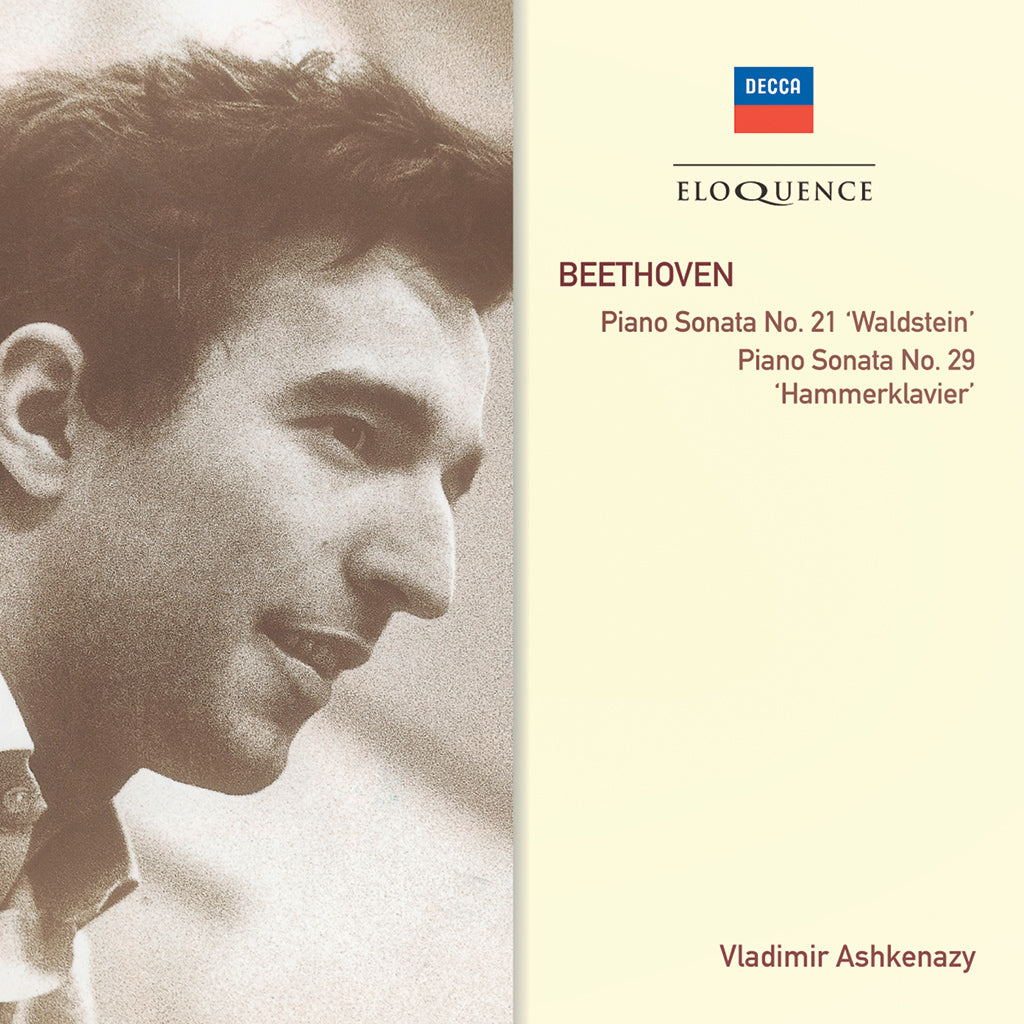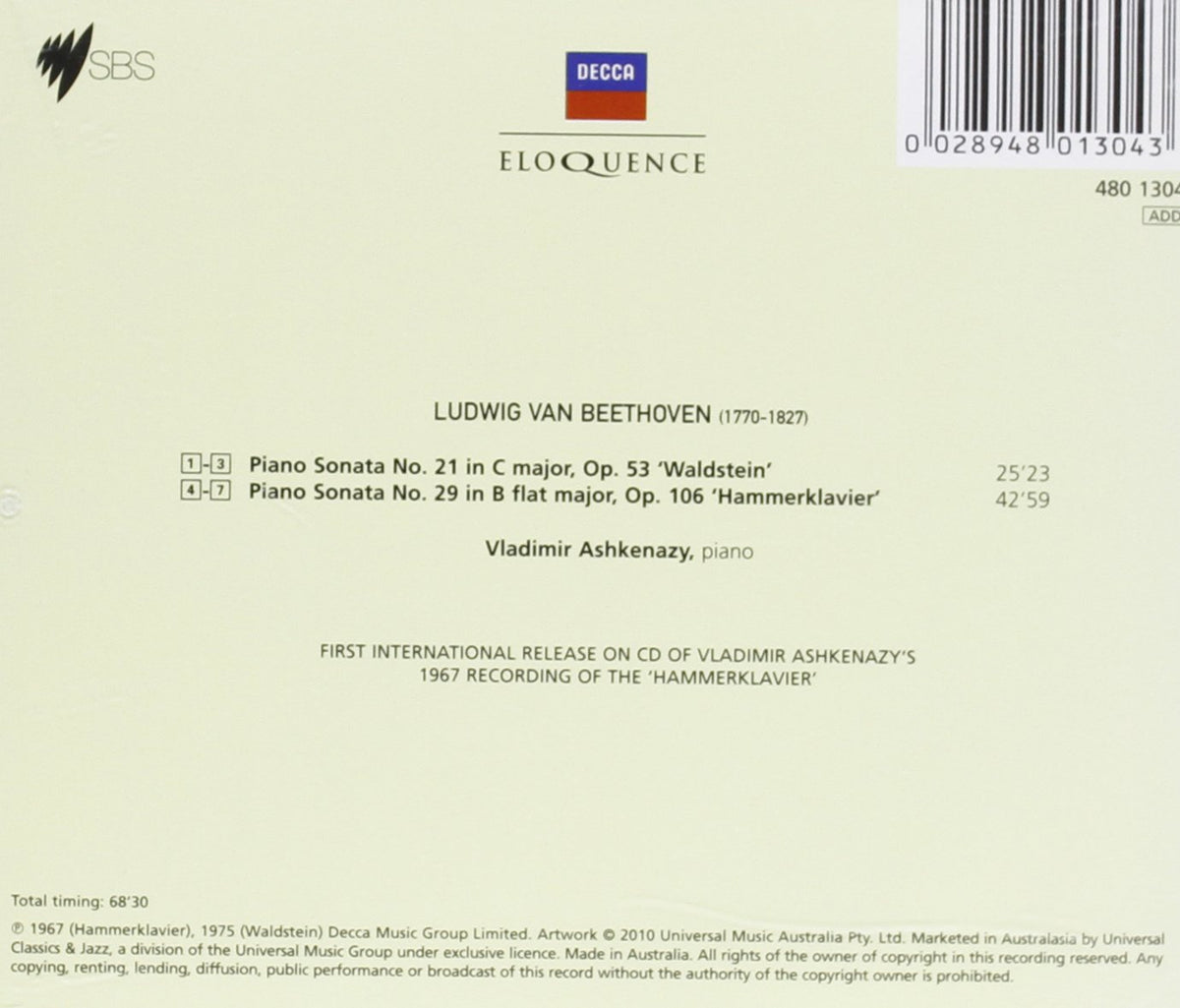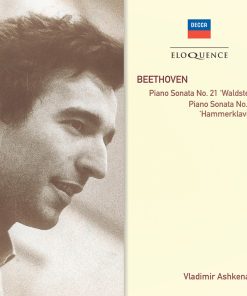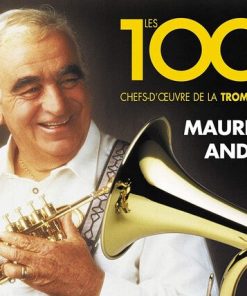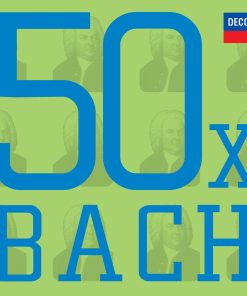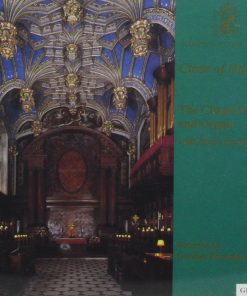BEETHOVEN: Piano Sonatas Op. 53 “Waldstein”; Op. 106 “Hammerklavier” – Ashkenazy DECCA
$ 5,00 $ 3,00

As both composer and performing virtuoso, the piano was central to Beethoven’s life. However, his relationship with the instrument turned out to be a love-hate affair and few, if any models satisfied him. He wrote to the piano manufacturer, Johann Streicher that ‘the pianoforte is still the least studied and least developed of all instruments’. On the other hand, could the pianos of Beethoven’s time withstand the elemental power and dynamism of his home grown keyboard technique and passionate, uncouth performing style? By all accounts Beethoven took to the piano as a tornado descends upon a modest frame house, frequently leaving behind a trail of broken strings and stuck hammers and shaking up his colleagues in the wake.
The two sonatas featured on this release charted unprecedented paths of sonority and virtuosity, although the musical and pianistic aims radically differ. Ashkenazy re-recorded them both the ‘Hammerklavier’ for his complete Beethoven sonata cycle and the ‘Waldstein’ as a digital remake for a separate CD. The rare and much sought-after 1967 recording of the ‘Hammerklavier’ – Ashkenazy’s first of any Beethoven sonata for Decca – is sharply delineated and full of tensile energy, the fugal finale’s gnarlier sequences more incisively articulated than his later remake.

LUDWIG VAN BEETHOVEN
Piano Sonata No. 21 in C major, Op. 53 ‘Waldstein’
Piano Sonata No. 29 in B flat major, Op. 106 ‘Hammerklavier’
Vladimir Ashkenazy, piano
Fast Shipping and Professional Packing
Due to our longstanding partnership with UPS FedEx DHL and other leading international carriers, we are able to provide a range of shipping options. Our warehouse staff are highly trained to pack your goods exactly according to the specifications that we supply. Your goods will undergo a thorough examination and will be safely packaged prior to being sent out. Everyday we deliver hundreds of packages to our customers from all over the world. This is an indication of our dedication to being the largest online retailer worldwide. Warehouses and distribution centers can be located in Europe as well as the USA.
Orders with more than 1 item are assigned processing periods for each item.
Before shipment, all ordered products will be thoroughly inspected. Today, most orders will be shipped within 48 hours. The estimated delivery time is between 3-7 days.
Returns
The stock is constantly changing. It's not entirely managed by us since we are involved with multiple parties such as the factory and our storage. The actual stock can fluctuate at any time. Please understand it may happen that your order will be out of stock when the order is placed.
Our policy is valid for 30 days. If you haven't received your product within 30 days, we're not able to issue either a return or exchange.
You are able to return a product if it is unused and in the same condition when you received it. It must also still remain in the original packaging.
